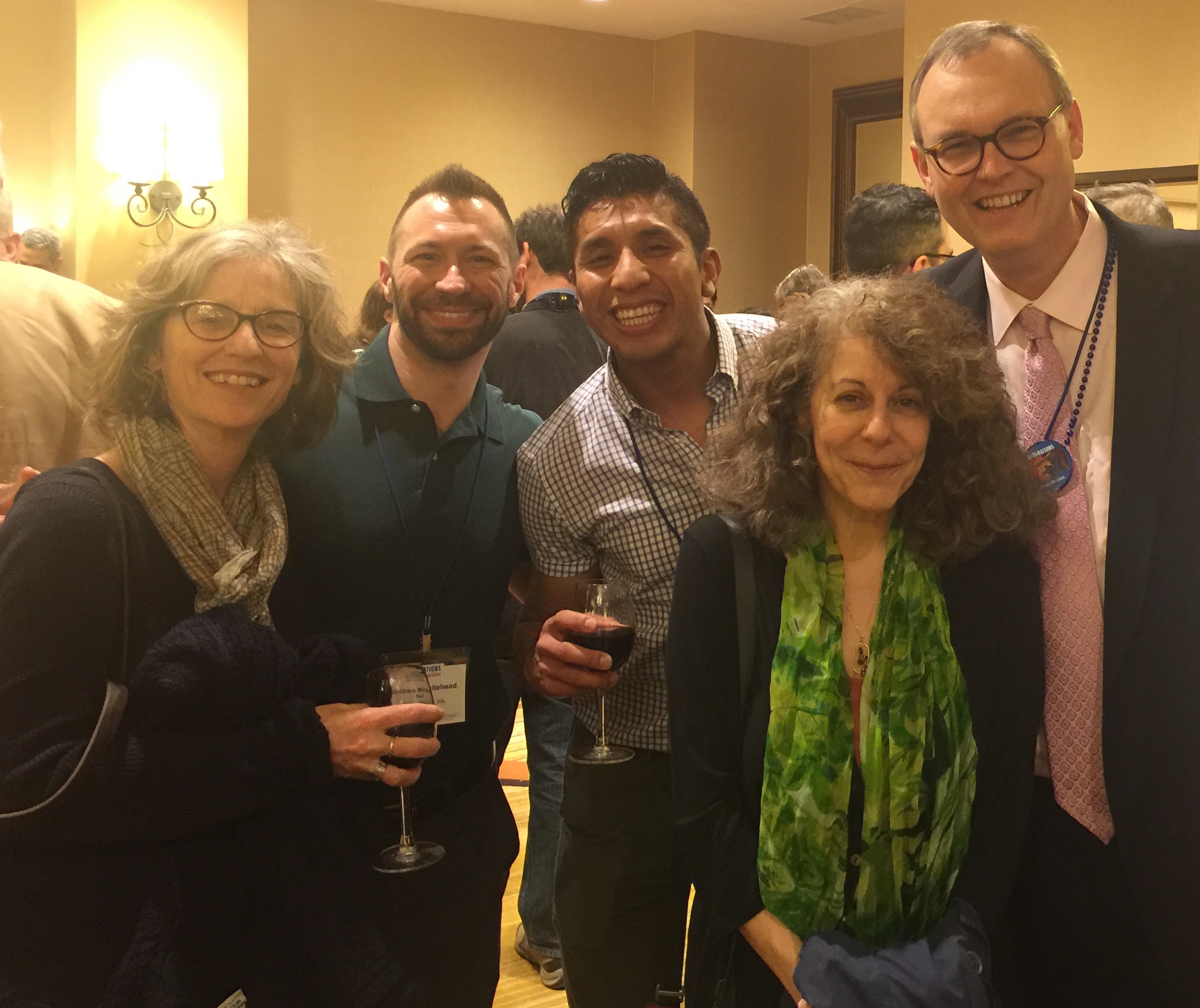IRPP
The Institute for Relational Psychoanalysis of Philadelphia

About Us
Psychoanalysis has influenced cultural thought and discourse in subtle but persistent ways, and has continued to beckon those mental health practitioners who are drawn to complexity, who view strong emotion as a resource and not only something to be managed, and who appreciate that psychological suffering is virtually never a simple matter. As a discipline, it remains vital only to the extent that it can be responsive to social and cultural change, engage challenges from within and outside the field, and be able to facilitate growth and richer life experience in both patients and practitioners.
The "relational turn" in psychoanalysis, marked by the appearance of a number of important papers but organized especially in response to the 1983 publication of Greenberg & Mitchell's Object Relations in Psychoanalytic Theory, has influenced the field as a whole. The claim that relationships with others, real and fantasied, form the core of human motivation and are at the heart of any psychoanalytic endeavor now permeates all schools of thought within the field. While some still see instinctual drives, which were at the core of Freud's theory of motivation, as a primary organizing force, most theorists now see drive in a more subsidiary role, following rather than leading relational configurations, and many rarely speak of "drive." Why, then, a specifically "Relational" psychoanalysis and an independent school?
Relational psychoanalysis is rooted in constructive critique of earlier iterations of psychoanalytic theory and practice; constructive, in that there was a concerted effort, from the beginning, to integrate as well as challenge elements drawn from the various, more insular analytic schools of thought. Accordingly, we have designed, and continue to modify our curriculum in that spirit. We strive to create a foundation in both clinical practice and more traditional psychoanalytic theory that will render critical thought and exploration enlivening and deepening of the experience for both analysts and their patients, and also a learning environment that we hope will be, in Bromberg's words, "safe, but not too safe."
With successive cohorts, we have become aware of changes within the field - differences in what candidates bring to relational training that are challenging how we have conceptualized the curriculum up until now. At the same time, we have developed a clearer sense of the spirit we hope will infuse the training – one of critical reflection not only of theory but of oneself in relation to others (colleagues and patients). Beyond this, we aim to nurture a “way in” to the process of learning and practice that complements critical thought; we might describe this more as an affective awareness of self and other that becomes deepened and elaborated over time. Critical thinking, then, blends with an affective awareness and responsiveness that is both subject to continual reflection and becomes more trustworthy and spontaneous over the course of training.
This focus on developing one’s capacities for affective discernment, reflection, and responsiveness is brought to bear in a clinical context in which social and cultural realities are increasingly appreciated as salient in all kinds of relationships, including therapeutic ones. How do elements of gender and sexuality; racial, cultural and class contexts shape the intersubjective dynamics in a therapy relationship? How do we think about making the move across difference to consider not only other adults, but children and adolescents, in the relational matrices of their families and communities, as those with whom we might work clinically? With respect to this latter issue, we are interested in areas where we can fruitfully integrate the training of candidates who work with adults (primarily or exclusively) with child training, rather than continue the practice of segregating (and thus marginalizing, as Silber has noted) the treatment of children.
While we want candidates to think critically, we also realize that there needs to be more comfort with some of the basic assumptions that both guide much solid practice, and can then allow departures as one becomes increasingly able to use both experience and a community of shared reflection to question some of these assumptions. In short, we are hoping that training will help candidates to hold theory “lightly”, but recognize that there has to be a solid base of theory to hold onto before loosening one’s grip. Thus, we are now more explicitly committing to providing a solid foundation in basic clinical skills as part of the training - a refresher in contemporary psychoanalytic working principles, including use of diagnostic thinking; attention to ethics and the more recent revitalization of ethics to consider social and cultural implications across contexts.
We remain deeply committed to a relational way of approaching psychoanalytic work, and continue to believe that this kind of training and practice is simultaneously an intellectual and an emotional endeavor, and that this interplay renders the work both exciting and sometimes challenging. In addition, we are embarking on a new effort to more fully integrate consideration and treatment of children in family context into our core mission. Now that neither the century nor our school is brand new, we hope to reflect the changes we have been encouraged by our colleagues, our students, and the current times to adopt, while offering a more articulated vision of the unique potentials offered by relational psychoanalytic work.


